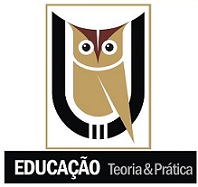MULTIGRADE SCHOOLS AND HISTORICAL-CRITICAL PEDAGOGY: BEGINNING OF A REFLECTION
DOI:
https://doi.org/10.18675/1981-8106.vol28.n58.p408-425Keywords:
pedagogia histórico-crítica, práxis pedagógica, escolas multisseriadas.Abstract
This study aims to analyze existing teaching practices in multigrade schools in the municipality of Tocantinópolis/TO, having the contribution of historical-critical pedagogy as reference. Thus, the articulations of pedagogical work with social issues become a priority to be analyzed in this research, regarding multigrade schools, precisely because these classes are offered to children of the working class living in the countryside. Therefore, the problem appears, based on the following question: how are pedagogical practices in multigrade schools in Tocantinópolis municipality have been materializing? To solve the proposed problem, we appealed to the historical-critical pedagogy proposition to better understand the object studied. For methodological organization of the article, a theoretical, field research was conducted. The result, temporary, provided a view on teachers’ practice in multigrade schools in Tocantinópolis, which demonstrated the lack of a revolutionary pedagogy. Keywords: Historical-critical pedagogy. Pedagogical praxis. Multigrade schools.Additional Files
Published
How to Cite
Issue
Section
License
Authors who publish in this journal agree to the following terms:
a) Authors assign copyright to the journal, with the work simultaneously licensed under the Creative Commons Attribution License that allows sharing of the work with acknowledgment of authorship and publication in this journal.
b) The policy adopted by the Editorial Committee is to assign copyright only after a period of 30 months from the date of publication of the article. After this time, authors interested in publishing the same text in another work must send a letter to the Editorial Committee requesting the release of the assignment of copyright and wait for a response.
c) This journal provides public access to all its content, since this allows greater visibility and reach of published articles and reviews. For more information on this approach, visit the Public Knowledge Project, a project that developed this system to improve the academic and public quality of research, by distributing OJS as well as other software to support the public access publication system to academic sources. The names and email addresses on this website will be used exclusively for the purposes of the journal and will not be available for other purposes. This journal provides open any other party  This work is licensed under a Creative Commons License
This work is licensed under a Creative Commons License











